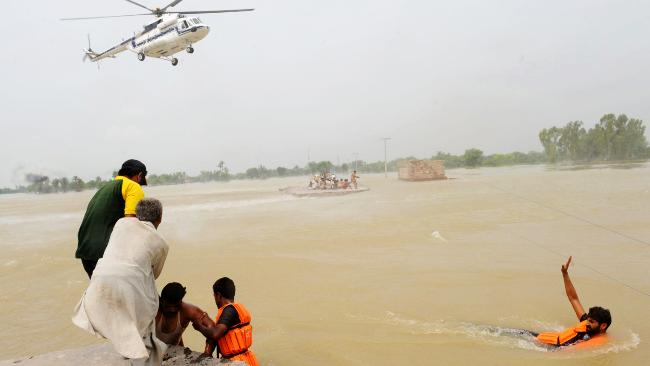Attempts to tame Indus River contributed to disaster in Pakistan
By ROBERT MACKEY
August 18, 2010, 6:57 pm In a radio interview broadcast on Wednesday, Daanish Mustafa, a scholar who studies the intersection of development and water resources, told the BBC that attempts to tame the Indus River, beginning during British rule in the 19th century, laid the foundations for the deadly floods that swept Pakistan this month. Mr. Mustafa, who teaches at King’s College in London and has worked on social development and environmental preservation projects in Pakistan, also suggested that changes in weather patterns may force the country to rethink fundamentally the way it manages the river that is its most precious natural resource. Mr. Mustafa noted that “Pakistan exists because of the Indus,” which makes fertile the land in its flood plain. But, he added, “poor management” of the river for more than a century seems to have made devastating floods more likely. He said:One cannot pin blame on the last six months or last year or something, this is something that’s been going on for 150 years — and not just in the Indus. It’s been happening in most major river valleys around the world, where there’s a balance between protecting yourself from excess water in the river and of course reaping the benefits of the flood plain, the fertile soil that you get there, crops that you can grow there. …
Attempts to Tame Indus River Contributed to Disaster in Pakistan, Expert Says
